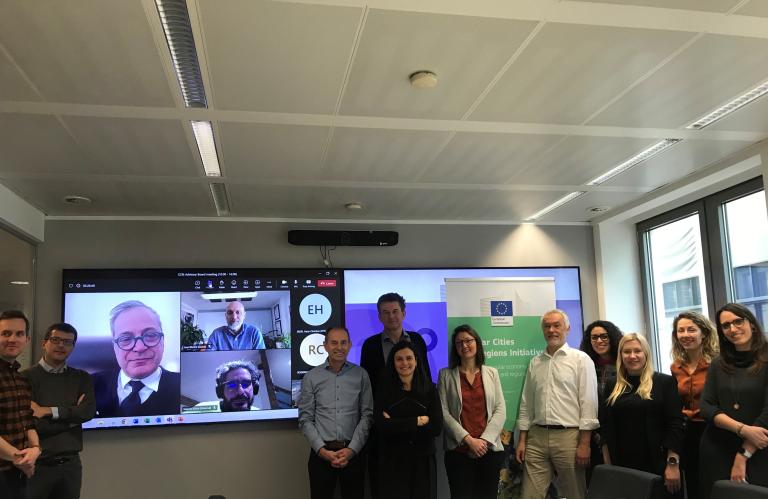CCRI Advisory Board discusses progress and priorities at second meeting in Brussels
Published on 13.04.2023
The Circular Cities and Regions Initiative (CCRI) Advisory Board met for the second time on 15 February 2023. The meeting provided a forum for high-level circular economy experts to share strategic advice on the Initiative’s work so far.

More information
The CCRI’s Advisory Board provides strategic advice for the implementation and further development of the Initiative, as well as the work of the CCRI Coordination and Support Office. It is composed of several high-level experts in the circular economy field.
The board meets at least once a year. Following its first meeting on 7 November 2022, the second meeting took place in Brussels on 15 February 2023.
Reflecting on one year of the CCRI
The meeting offered an opportunity for the European Commission and the CCRI office to update the Advisory Board on recent activities.
The first year of the CCRI has seen the selection of 12 Pilots and 25 Fellows, while 16 Projects and 11 Associated Partners have also joined the CCRI community.
Funding opportunities have been made available under Horizon Europe, including several circular economy and CCRI-related calls for demonstrating Circular Systemic Solutions as well as for supporting and complementing the work of the CCRI office.
Looking ahead, the focus of 2023 is to support the CCRI community with the implementation of such solutions, following a recent assessment of Pilots’ and Fellows’ diverse needs.
Activities will also include knowledge and experience sharing opportunities and kick-start group support involving all CCRI stakeholders, especially through the four recently established Thematic Working Groups.
Board provides strategic advice
The meeting also provided a forum for fruitful discussions on various topics, including monitoring, engaging supporting organisations as well as other cities and regions not involved as CCRI stakeholders, and unlocking circular-economy financing.
The board offered its strategic advice on the wide-ranging ways in which the CCRI can continue to support circular economy stakeholders and lead the transition towards a circular economy in Europe.
In particular, they discussed the importance that stakeholders working on circular economy at local and regional levels are provided with relevant knowledge for local circumstances and needs, given information can quickly become outdated in the fast-paced circular economy environment.
It is also important to raise awareness of the positive impacts/benefits of the circular economy in cities and regions. Given the close interlinkages between decarbonisation and circular economy processes, circular solutions can contribute positively to the issues of climate change and energy crises.
There must be a systemic approach to developing Circular Economy Action Plans, considering local realities, contexts and social aspects. As systemic transformations are about scale, the collaboration of all governance levels is key, in addition to the involvement of all relevant circular economy actors and citizen engagement.
To stay informed on the CCRI’s activities, including new sources of information and knowledge, make sure you are subscribed to the CCRI newsletter.

built environment, CEAP2 key product value chain
including bio-based economy
e.g. chemicals, cosmetics, bio-based industries



